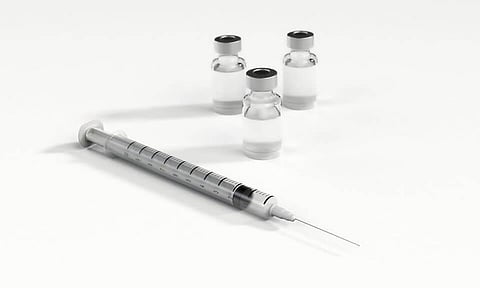
- Home
- न्यूजग्राम
- NewsGram USA
- India
- World
- Politics
- Entertainment
- Culture
- Lifestyle
- Economy
- Sports
- Sp. Coverage
- Misc.
- NewsGram Exclusive
- Jobs / Internships

A new vaccine against tuberculosis (TB) made using weakened form of a common Herpes virus, has been found highly effective in rhesus monkeys and is now moving toward testing in humans, scientists reveal.
The new vaccine completely protected 41 per cent monkeys and reduced overall TB disease by 68 per cent in vaccinated rhesus macaques, while 30 per cent had less severe disease than unvaccinated monkeys.
"Because rhesus monkeys are significantly more susceptible to TB than humans and given how effective our new vaccine has been in these monkeys, we feel that the human version of our vaccine could have the potential to be even more effective in protecting humans," said lead investigator Louis Picker, Professor at the Oregon Health and Science University.
The researchers re-engineered CMV with tiny bits of a disease-causing pathogen to create and maintain a high state of immunity against the pathogen in vaccinated monkeys.
This approach has the potential to work better than standard vaccines for aggressive pathogens that infect quickly, overrun a person's immune response, or can hide from the immune system, Picker said.
In contrast, no measurable protection was found in the monkeys treated with the current standard TB vaccine, the Bacillus Calmette-Guerin vaccine.
Further, the team will work to better define the biological mechanisms by which their new TB vaccine works and would expand testing with plans to start a human clinical trial in 2020.
"With more than 1.7 million people dying globally from TB each year and the rise of strains that are resistant to drug treatment, we need a better way to prevent this disease," Picker said.
Using the same approach an HIV/AIDS vaccine is also slated for human clinical trial in 2019. (IANS)
